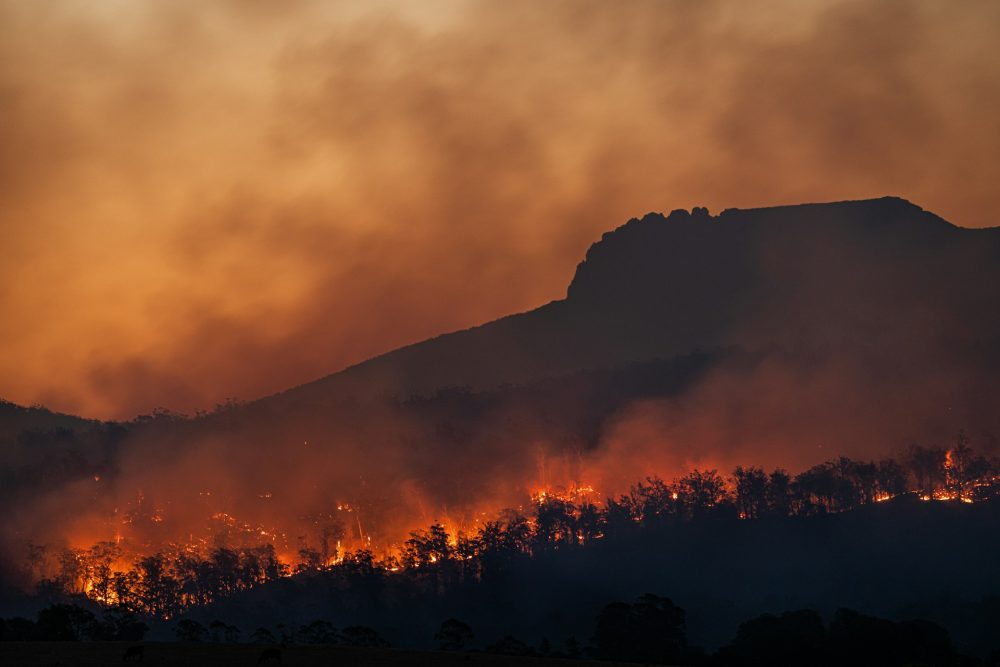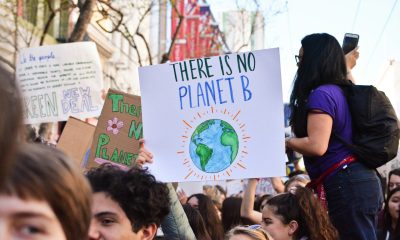Impact Investing
Lancet Countdown 2025 Warns: Climate Change Is a Global Health Emergency
The Lancet Countdown 2025 report warns that climate change is a current global health emergency, intensifying heat-related deaths, disease spread, and food insecurity. Vulnerable populations face worsening inequality as adaptation lags. Experts urge faster emissions cuts and stronger health systems, stressing that climate action can save lives and build a fairer, healthier future.

Climate change is not a future threat, but a current health emergency affecting the lives, health, and well-being of millions of people on every continent. This is the warning issued in the new Lancet Countdown 2025 report, produced by an international consortium of more than 120 experts in health, climate, epidemiology, and economics, which annually assesses the link between global warming and human health.
The document, which analyzes more than 50 indicators, presents an alarming picture: exposure to extreme weather events, the increase in infectious diseases, and food and job insecurity are growing steadily, while adaptation efforts are not progressing at the pace needed to protect the most vulnerable populations.
“Every tenth of a degree counts. The health of humanity is at stake if governments do not accelerate emissions reductions and the transition to sustainable systems,” the report emphasizes.
More heat, more deaths, and more inequality
Extreme heat is becoming one of the main threats to global health. According to The Lancet Countdown 2025, the world’s population is now experiencing an average exposure to heat waves three times higher than that recorded between 1986 and 2005. People over 65 and children under one year old are the most affected: in 2023, episodes of intense heat were linked to more than 500 million additional exposures in these at-risk groups.
Cities bear the brunt of the climate change impact. The combined effects of the urban heat island effect, pollution, and population density have increased heat-related mortality rates by 85% compared to levels at the beginning of the century. At the same time, agricultural and construction workers are losing millions of work hours due to rising temperatures, with serious economic and social repercussions.
The poorest countries are the hardest hit by climate change. In regions like sub-Saharan Africa and Southeast Asia, where access to healthcare and cooling is limited, heat waves already pose a critical stress factor for survival. The report underscores that climate inequality translates directly into health inequality .
Climate change is driving the spread of diseases
Another of the report’s most worrying findings is the geographic and temporal expansion of vector-borne diseases Rising temperatures and irregular rainfall are favoring the spread of mosquitoes that transmit dengue, Zika, chikungunya, and malaria.
In the last decade, the potential for dengue transmission by Aedes aegypti has increased by 20% globally, and that of Aedes albopictus by 30%, with a greater risk even in temperate zones that were previously considered safe. Europe, North America, and parts of the eastern Mediterranean have begun to register local outbreaks, as a consequence of the climate change.
Added to this are the impacts on food and nutritional security. Recurrent droughts and floods have reduced the yields of staple crops such as wheat, rice, and maize, and threaten to worsen malnutrition in low-income countries. According to the authors, “climate change acts as a threat multiplier, exacerbating pre-existing health crises and creating new vulnerabilities.”
Although the report acknowledges that many countries have begun to integrate health into their climate strategies, the speed and scope of these measures are insufficient. Only half of the countries surveyed have fully implemented national health and climate change plans, and in many cases, they lack the funding or specialized personnel to carry them out.
Indicator 2.1 of The Lancet Countdown 2025 reveals that early warning systems for heat waves, floods, or infectious disease outbreaks cover less than 40% of the world’s population. In low- and middle-income countries, only 27% have adequate resources to respond to climate emergencies.
“Progress is real, but still too slow to protect those who need it most,” the authors state in the document. “Adaptation must be accompanied by a profound transformation of energy, food, and health systems.”
International funding also fails to meet the scale of the challenge brought by the climate change. Although investments in climate resilience have increased, health receives only a tiny fraction of global adaptation funds , leaving health ministries with little capacity to prepare infrastructure, personnel, and communities for future impacts.
Health, energy and climate action
Despite the alarming tone, the report also offers a message of hope. Measures that reduce greenhouse gas emissions can generate immediate health benefits: less air pollution, more sustainable diets, greener cities, and more active transportation.
The Lancet Countdown 2025 underscores that the transition to clean energy could prevent millions of premature deaths each year related to pollution, which currently causes around 7 million deaths annually. Furthermore, it highlights that well-designed mitigation policies “can improve health equity and strengthen community resilience.”
The report concludes with an unequivocal message: the window of opportunity to ensure a healthy and secure future is closing rapidly. If emissions continue at the current rate, global warming could exceed 1.5 °C in less than a decade, with irreversible consequences for human health.
“The choice is clear: act now to protect health or face a future of cascading crises,” states The Lancet Countdown 2025. “Healthcare professionals, policymakers, and society as a whole have an essential role to play in the response.”
Climate change is no longer just an environmental problem, but the greatest public health challenge of the 21st century. The data in the new report are a wake-up call, but also a roadmap: investing in health, adaptation, and clean energy will not only save lives, but will also make a fairer and more habitable planet possible for future generations.
__
(Featured image by Matt Palmer via Unsplash)
DISCLAIMER: This article was written by a third party contributor and does not reflect the opinion of Born2Invest, its management, staff or its associates. Please review our disclaimer for more information.
This article may include forward-looking statements. These forward-looking statements generally are identified by the words “believe,” “project,” “estimate,” “become,” “plan,” “will,” and similar expressions. These forward-looking statements involve known and unknown risks as well as uncertainties, including those discussed in the following cautionary statements and elsewhere in this article and on this site. Although the Company may believe that its expectations are based on reasonable assumptions, the actual results that the Company may achieve may differ materially from any forward-looking statements, which reflect the opinions of the management of the Company only as of the date hereof. Additionally, please make sure to read these important disclosures.
First published in GACETA MEDICA. A third-party contributor translated and adapted the article from the original. In case of discrepancy, the original will prevail.
Although we made reasonable efforts to provide accurate translations, some parts may be incorrect. Born2Invest assumes no responsibility for errors, omissions or ambiguities in the translations provided on this website. Any person or entity relying on translated content does so at their own risk. Born2Invest is not responsible for losses caused by such reliance on the accuracy or reliability of translated information. If you wish to report an error or inaccuracy in the translation, we encourage you to contact us.

-

 Fintech3 days ago
Fintech3 days agoDruo Doubles Processed Volume and Targets Global Expansion by 2026
-

 Impact Investing2 weeks ago
Impact Investing2 weeks agoBank of Italy Unveils Transition Plan for Net-Zero Emissions by 2050
-

 Impact Investing1 week ago
Impact Investing1 week agoIntesa Sanpaolo’s 2026–2029 Growth and ESG Strategy
-

 Business17 hours ago
Business17 hours agoTopRanked.io Weekly Affiliate Digest: What’s Hot in Affiliate Marketing [Health Trader Affiliate Program Review]





















